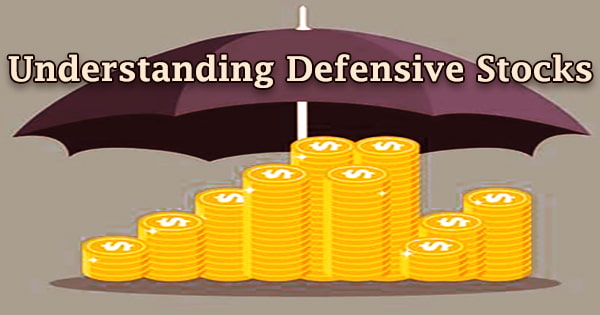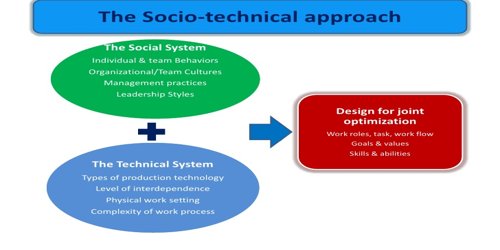A defensive stock is one that can be counted on to produce steady returns even during a downturn in the economy or the stock market. Because they are less susceptible to the economic cycle of expansions and recessions, defensive stocks are also known as non-cyclical equities. There is a steady interest for their items, so protective stocks will in general be more steady during the different periods of the business cycle. Normally these organizations offer labor and products that individuals keep on purchasing in any event when the economy isn’t progressing admirably.
Investors should be aware of their objectives, risk tolerance, and in-depth understanding of the firms in which they wish to invest. Defensive companies will pay a consistent dividend and have a more stable share price. Investing should only be done after thorough study; else, one risks losing money. Contingent upon one’s monetary objectives, stocks must be singled out. Defensive stocks ought not to be mistaken for guard stocks, which are the supplies of organizations that produce things like weapons, ammo, and fighter jets.
Cyclical stocks provide large profits but also carry significant risk, whilst defensive stocks provide consistent returns regardless of market conditions. Investors typically add defensive stocks to their portfolios during a predicted recession since they are projected to do well despite the economic slump. Then again, repeating stocks reflect the monetary cycle by flourishing during financial rises and enduring during a downswing.

Defensive stocks offer the generous advantage of comparative long-haul gains with lower hazards than different stocks. Normal defensive stocks are organizations that produce necessities, like utilities, medical services, or customer staples. There are no hard and fast criteria for determining what constitutes a defensive stock, but there are some broad principles to consider:
- History of success: The business is well-established and rather substantial. It has been in operation for at least a couple of decades, and a total market value in the billions is a realistic benchmark.
- Consistent dividends: Over a ten-year period or longer, the stock has regularly paid dividends.
- Low volatility: The beta coefficient, which compares the fluctuations of a stock to those of the entire stock market, should be low, ideally below one. This shows that market fluctuations have little impact on the stock. The beta coefficient is a complicated economic instrument, but it may typically be found in analyst reports on a firm or in its online stock listing.
Financial backers trying to secure their portfolios during a debilitating economy or times of high unpredictability might expand their openness to cautious stocks. Beta estimates a stock’s unpredictability corresponding to the general market. Defensive stocks ordinarily accompany a low beta since they are less influenced by market swings. Conservative investors and those looking to preserve capital choose defensive stocks because of their consistency, but more adventurous investors may avoid defensive stocks completely and safeguard their wealth by keeping a cash and/or bond cushion.
A cautious investor who is wary of taking risks might put their money into defensive companies that will provide consistent returns. Gas, electricity, FMCG, and other defensive equities are examples. Defensive stocks include well-known businesses like Procter & Gamble (PG), Johnson & Johnson (JNJ), Philip Morris International (PM), and Coca-Cola (KO). Defensive stocks likewise generally come from areas that produce necessities or buyer staples. Buyers who buy such labor and products will do as such paying little heed to a downturn. They likewise will not be accepting overabundance of the labor and products regardless of whether cash is accessible to spend if the economy is blasting.
Advantages of defensive stocks –
- Stability: Market volatility may deter some investors from participating, but the steadiness of defensive equities provides an alternative. Including these reliable performers in your portfolio will help protect you from stock market fluctuations.
- Low-risk: Defensive stocks are popular among investors who want to preserve their assets against loss. These low-risk businesses hold their worth, as well as the value of their investors’ money, over time.
- Outperform in periods of economic decline: Defensive equities tend to outperform their cyclical counterparts when the economy falters. In principle, this can help to offset any losses in growth stocks that occur during a recession.
Disadvantages of defensive stocks –
- Low-growth: Defensive stocks seldom see significant growth as a result of their stability. They may hold their worth over time, but you are unlikely to become wealthy from them.
- Underperform in periods of economic growth: Defensive stocks are more likely to stay where they’ve always been in terms of growth while the economy is improving and other equities are surging. In fact, while the market is rising, they usually underperform. This means that having too many defensive companies in your portfolio might weigh down your portfolio while the market is performing well, preventing you from profiting from economic upswings.
- Can be overvalued: During moments of economic downturn, defensive stocks are frequently overpriced. If you’re buying a stock because you’re worried about the economy and think it’s a safe investment, you can guarantee that a lot of other people are doing the same. During a downturn, this might cause the stock to have an artificially inflated value.
Defensive stocks will in general perform better compared to the more extensive market during downturns. Notwithstanding, during a development stage, they will in general perform beneath the market. While looking for companies in defensive sectors is a fine place to start, it’s more crucial to focus on the specific characteristics of stock (such as its size, dividend payout, and historical returns) that indicate it will perform defensively. Because they are not significantly connected with the business cycle, defensive stocks are also known as noncyclical equities.
Information Sources:
















